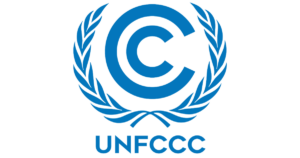Since 1992, the World Community, served by the United Nations System, is fully committed to addressing three key environmental challenges: climate change, desertification, and biodiversity loss. Served by the Three Rio Conventions, as they are now known, with their respective Secretariats:
- UNFCCC: United Nations Framework Convention on Climate Change,
- UNCCD: United Nations Convention to Combat Desertification,
- UNCBD: Convention on Biological Diversity.
The purpose of the Conference of the Parties (COPs) is to accelerate, operationalize, and advance the implementation of the Conventions. YSI strongly supports the success of the Rio Conventions and actively engages in this process.
The purpose of the Conference of the Parties to the Convention (COP) of the United Nations Framework Convention on Climate Change (UNFCCC) is to convene member countries every year to determine ambition and responsibilities and identify and assess climate measures. The 21st session of the COP (COP21) led to the Paris Agreement, which mobilized global collective action to limit the global temperature increase to 1.5C above pre-industrial levels by 2050, and to act to adapt to the already existing effects of climate change. This year, COP30 will be held from 10 to 21 November, in Belem, Brazil.
As YSI Community, we are involved in the UNFCCC Processes through engagements in the COPs and SBs to raise awareness of the Climate Process. However, we see a challenge on how
Since 1992, the World Community, served by the United Nations System, is fully committed to addressing three key environmental challenges: climate change, desertification, and biodiversity loss. Served by the Three Rio Conventions, as they are now known, with their respective Secretariats:
- UNFCCC: United Nations Framework Convention on Climate Change,
- UNCCD: United Nations Convention to Combat Desertification,
- UNCBD: Convention on Biological Diversity.
The purpose of the Conference of the Parties (COPs) is to accelerate, operationalize, and advance the implementation of the Conventions. YSI strongly supports the success of the Rio Conventions and actively engages in this process.
The purpose of the Conference of the Parties to the Convention (COP) of the United Nations Framework Convention on Climate Change (UNFCCC) is to convene member countries every year to determine ambition and responsibilities and identify and assess climate measures. The 21st session of the COP (COP21) led to the Paris Agreement, which mobilized global collective action to limit the global temperature increase to 1.5C above pre-industrial levels by 2050, and to act to adapt to the already existing effects of climate change. This year, COP30 will be held from 10 to 21 November, in Belem, Brazil.
As YSI Community, we are involved in the UNFCCC Processes through engagements in the COPs and SBs to raise awareness of the Climate Process. However, we see a challenge on how the negotiation process turns into a success.
This year, we invite you to the YSI Webinars on the UNFCCC where we will go deeper into “Why do climate negotiations fail?”. To understand why do climate negotiations fail, we want to create a holistic perspective. In this process, we want to consider three distinct perspectives to the climate negotiations. Namely, theoretical (scientists), practical (non-party) and negotiators (party) perspectives.
First Webinar: From a Practical Perspective with Clive Donnley on March 26th at 6 PM CET
To learn from NGOs and non-party organizations who have experience in the climate negotiations process.
-
- What are the existing limitations for non-parties to engage in climate negotiations?
- To what extent do their voices matter?
- What do they wish to see differently?
Moderator: Vania Llerena.
Discussants: Annet Dianah Nannono, Adekunle Fiyin Ademikanra, and Srishti Jain.
Access to the Session Recording here.
Second Webinar: From a Negotiators Perspective with Wassim Dbouk on May 28th at 6 PM CET
To learn from those who collaborated with politicians from a country (party) active in the negotiations. To understand the following questions,
-
- What are the challenges in convincing parties to commit?
- Why do parties avoid making climate commitments and agree?
- What type of roadblocks can be avoided and how?
Moderator: Maria Virginia Solis Wahnish.
Discussants: Simba Marowa, Adekunle Fiyin Ademikanra, and Mateusz Ciasnocha.
Access to the Session Recording here.
Access to the Slides here.
Third Webinar: From a Theoretical Perspective with Piotr Tryjanowski on July 1st at 6 PM CET
To discuss why we observe failure in climate negotiations. To be specific,
-
-
- What drives persistent coordination challenges in international climate talks?
- How might insights from natural sciences help reframe the way we approach climate negotiations?
- What are the possible alternative solutions to devise a climate negotiations system to mitigate the existing limitations?
Moderator: Nurlan Lalayev.
Discussants: Reyhan Mammadova and Florian Repper.
Access to the Session Recording here.


